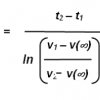"For a start, how is the existence of the other universes to be tested? To be sure, all cosmologists accept that there are some regions of the universe that lie beyond the reach of our telescopes, but somewhere on the slippery slope between that and the idea that there are an infinite number of universes, credibility reaches a limit. As one slips down that slope, more and more must be accepted on faith, and less and less is open to scientific verification. Extreme multiverse explanations are therefore reminiscent of theological discussions. Indeed, invoking an infinity of unseen universes to explain the unusual features of the one we do see is just as ad hoc as invoking an unseen Creator. The multiverse theory may be dressed up in scientific language, but in essence it requires the same leap of faith."
Paul Davies, A Brief History of the Multiverse
This quote isn't intended to be an argument for a God. Calm down trolls.
No one said it was an argument for God lol. Are you talking to the supernatural?
But the quote is just factually wrong, and this Davies guy is just some crackpot. He's welcome to say there is no scientific basis, Except that the evidence of reality points to a multiverse theory. No one said it's certainly right, I said it was probably right. If all religious people started saying that religion is probably right, but there is still a significant margin of error, then that would make religious belief equivalent to a likely postulation of the multiverse theory. So in no way does it resemble theological discussions.
You might ask what the scientific basis is anyways though? Firstly, the multiverse theory provides a physical explanation of. That in itself does not support the multiverse theory at all, but it's better than just saying "SUPERNATURAL" or rather "NO EXPLANATION AT ALL." At least the multiverse theory has a chance of being verified through science.
Here's why-
"Level I: Beyond our cosmological horizon
A generic prediction of chaotic inflation is an infinite ergodic universe, which, being infinite, must contain Hubble volumes realizing all initial conditions.
Accordingly, an infinite universe will contain an infinite number of Hubble volumes, all having the same physical laws and physical constants. In regard to configurations such as the distribution of matter, almost all will differ from our Hubble volume. However, because there are infinitely many, far beyond the cosmological horizon, there will eventually be Hubble volumes with similar, and even identical, configurations. Tegmark estimates that an identical volume to ours should be about 1010115 meters away from us.[9] Given infinite space, there would, in fact, be an infinite number of Hubble volumes identical to ours in the universe.[10] This follows directly from the cosmological principle, wherein it is assumed our Hubble volume is not special or unique."
There is significant evidence for chaotic inflation as well, which would support these deductions.
And here is the quantum mechanical interpretation-
"In brief, one aspect of quantum mechanics is that certain observations cannot be predicted absolutely. Instead, there is a range of possible observations, each with a different probability. According to the MWI, each of these possible observations corresponds to a different universe. Suppose a die is thrown that contains six sides and that the numeric result of the throw corresponds to a quantum mechanics observable. All six possible ways the die can fall correspond to six different universes."
http://en.wikipedia....antum_mechanics
This explains why probabilities are quantized to certain values in quantum mechanics. Black hole analyses and singularities also suggest that certain regions of space are causually separated.
Of course none of this is guaranteed. But when several different scientific theories converge on the same conclusion, that conclusion is probably right. The higgs boson, for example is good evidence of the general predictive power of science. It was predicted 30 years ago from mathematical analyses while this Davies guy would probably argue the kind of analysis is just theology. It is simply not just theology. Theology makes no reasonable predictions at all, but science does.
Edited by serp777, 05 June 2014 - 09:21 PM.
















































